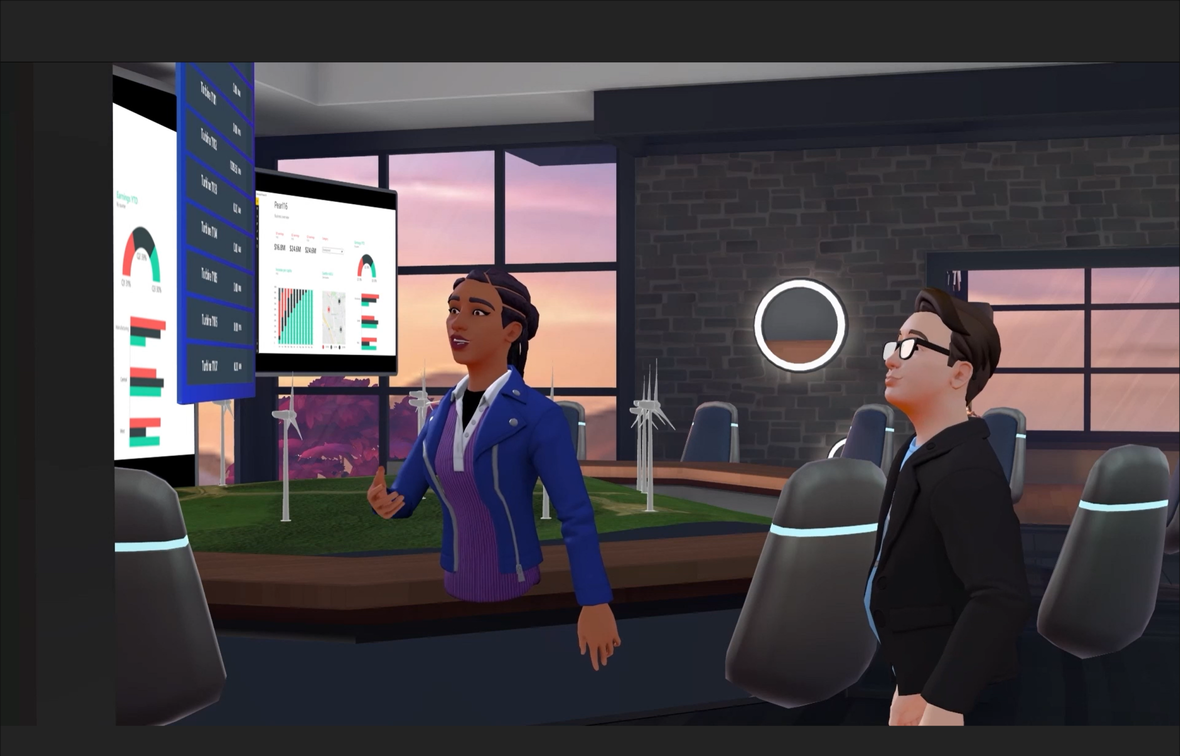AT&T's AR Helmet & MSFT Mesh - MetaVisions #02

AT&T's AR Helmet & Microsoft Mesh
Hi everyone, hope you're all well! Here it is, the second edition of our MetaVisions newsletter. This week, I want to focus on an incredible story from AT&T and the release of Microsoft Mesh, abit about the platform, but mainly what I think it means for XR adoption and where we are at the moment.
AT&T's 5G AR Helmet - driving inclusivity into American Football fields
Most of you won't know this, but I played American Football at University (not long),the hardest aspect of the game for me was understanding the plays, as every player has to be on point for it to work, if someone executes the wrong play, the whole thing fails.
In the USA, there is an University that is specialised in bilingual education for deaf and hard of hearing students. They are the only team deaf-led team in the whole of the States! Surely playing a sport that is heavily communication dependent must be a massive struggle for the athletes, right?
Correct, players only have a couple of seconds to understand which play they will be running, and sometimes it is all done through signs and shouting from the coach that is in the sidelines.
Having learned about this, AT&T took the challenge to diminish this disadvantage to give deaf players a more level playing field. What they achieved has been truly remarkable.
AT&T has cleverly used 5G connectivity, Augmented reality and a Custom App to promote real change through Innovation.The solution itself is quite easy to be explained. The coach has an app where he can input which play the team will run, this is sent to the player's helmet by using AT&T low latency 5G connectivity, the play is then displayed on the player's helmet through a small AR display. Simple but extremely creative and effective, honestly I think all players would probably love to have access to this Tech!
In addition to this, AT&T quickly mentioned that this 5G AR Helmet could translate into other use cases, such as safety in construction sites or helping first responders, and create more opportunities for the deaf community across the board.
Bravo to AT&T for thinking outside of the box, delivering meaningful change and inclusivity into a sport through the use of technology!

Microsoft Mesh - an insight into XR's market?
Microsoft's immersive meeting solution was teased and talked about for a long time now, but this October it actually went into preview.
The concept is quite simple. With a click of a button, move your Teams meeting into a 3D Immersive environment. Moving from audio and video, to 'Spatial' interaction. Users can customize the environment on a no-code basis or go full 'Bob The Builder' and use the Unity Toolkit, pretty cool stuff. Most importantly, it has VR compatibility. We know that the concept of Immersive Meetings and events is nothing new, this already exists in platforms such as Arthur or MeetinVR.
I honestly don't want to focus on the product itself, but I think Mesh will provide us valuable insight into user behavior and the current state of XR adoption, this is more important for me.
The integration into Teams means that soon, pretty much every user should have the ability to go into an Immersive space to run sales meetings, on-boarding sessions and staff training. When dealing with XR, the platform licensing side of things can be a real blocker for some organisations, especially at the POC stage, this should theoretically reduce that barrier massively. As a result of this, we should see more organisations starting their XR journey and exploring those use cases, which will generate more data into the efficiency of VR and Immersive spaces for the use cases I mentioned previously.
However, there is a massive factor that could negatively impact those efficiency data points, drum roll, User Adoption. Trust me, picking a few users, giving them headsets, and telling them to use this feature for their meetings and collaboration, is not the right way to go about things. On one hand, at the end-user level, training, guidelines and communication materials are essential, not only for the Mesh platform but even the VR device itself. On the other hand, at an organisational level, there needs to be an agreement into which use cases will be prioritised, who will be in charge of training users, dealing with challenges and setting KPIs for periodic reviews.
That being said, I do believe that Immersive will provide a toolkit to maximise employee productivity, for example 30 min meetings could be halved by putting users into an environment with no distractions and providing new ways to interact with data and content. I just hope organisations take a mature approach when jumping into platforms like Mesh. I know the feeling of seeing a new flashy innovation and just wanting to jump heads first into it, but that can be damaging in the long run.

See you next week,
Davi, MetaVisions
Reply